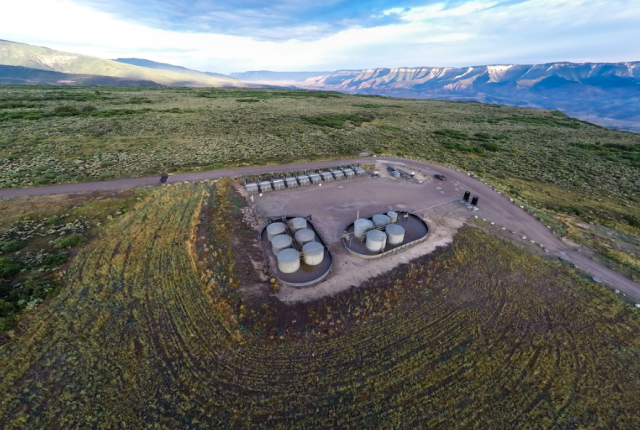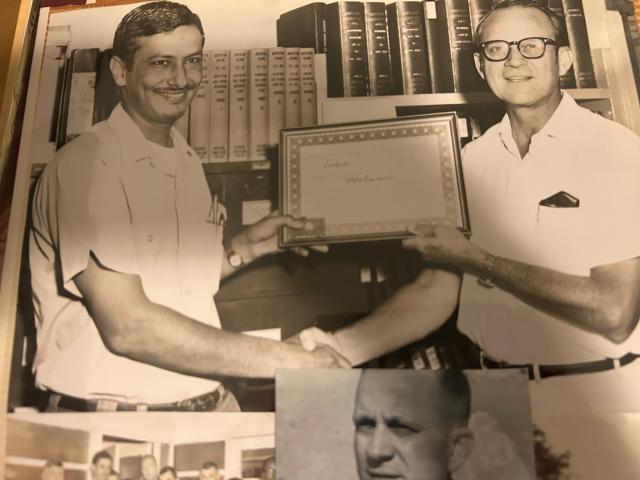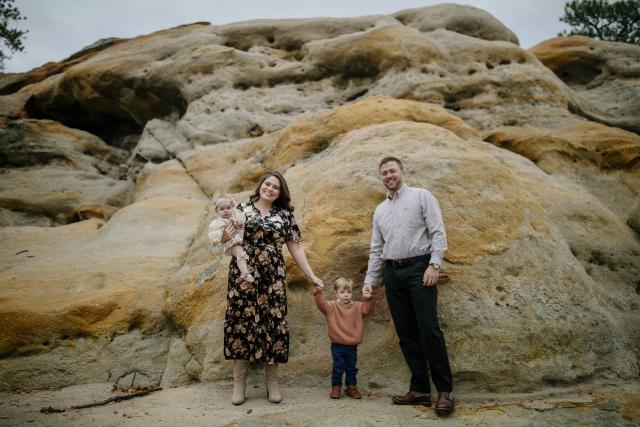BLM petroleum engineer carries on legacy, works for steady and clean energy production on public lands

The generational inheritance of the American people are the nation’s public lands, designated for their benefit. As steward for much of America’s public lands, the BLM manages landscapes that stretch across wild and open spaces, as well as vast natural resources under the surface.
Daniel Ballard, a petroleum engineer with the BLM’s Royal Gorge Field Office, is one of the people charged with the care and oversight of oil and gas energy resources across the eastern half of Colorado. He is part of a small team that is responsible for managing approximately 2,800 oil and gas wells sitting on top of nearly 6.5 million subsurface acres of oil, natural gas, helium, and other mineral resources.

That mission, Ballard said, evokes a sense of personal responsibility. His grandfather was a mechanical engineer who helped design and build Saudi Arabia’s oil refineries. His father was a petroleum geologist for the U.S. government for 30 years, making sure the public got fair market value for those minerals. Now, he carries the torch of that tradition.
“It feels like a real privilege to honor that legacy,” he said.
Ballard added that the opportunity to work for the U.S. government provided a balance between work and life not often found in the private sector – a benefit that he said was crucial to his decision to pursue a life of public service. There are significant advantages to the way the federal government manages the public’s mineral wealth, he said, and safeguarding public minerals for current and future generations provides him with a sense of purpose.

In 2023, BLM economists calculated that oil and gas activity in the Royal Gorge Field Office generated approximately $1.5 billion in total economic impact. This accounts for most of the $1.7 billion of total economic activity generated by the field office, something Ballard says he is proud of – especially after seeing what can happen to local economies when oil and gas production declines.
“It can have a major impact,” he said. “But if we can maintain steady, clean production, we can help preserve the livelihoods of some of these areas.”
As part of the BLM’s mission to manage land for multiple use and sustained yield, maintaining environmental, health, and safety standards is a vital part of ensuring these areas remain a valuable public resource to all. These standards, says Ballard, are a critical component to his job – one he wishes more people understood.
“One of my primary responsibilities is to make sure companies are operating according to all environmental standards and industry best practices. Those all exist for a reason, and they are usually based on key findings from major incidents, like the Deepwater Horizon-Macando blowout in 2010,” he said. “Without this oversight, we would see a lot more negative impacts to the public. It is incredibly important.”
In addition to providing vital oversight that protects public lands, the oil and gas program helps to facilitate an important source of revenue for the American taxpayer. For the Royal Gorge Field office, which administers BLM lands in 35 counties, the cost of the program averages $2.38 million per year. Over that same period, one of those counties produced royalty payments that averaged more than $61 million per year — a nearly 2,500% return on investment to the taxpayer.

Whether seeking to maximize royalties for the U.S. Treasury, or ensuring the safety and health of the environment, Ballard said a career protecting the interests of the American public has been a deeply fulfilling experience, giving him a sense of purpose and pride.
“Every day, I get the opportunity to make a difference – which is great,” he said. “And then I get to spend quality time with my family… which is priceless.”
For more information on the BLM’s oil and gas programs, visit https://www.blm.gov/programs/energy-and-minerals/oil-and-gas
Levi Spellman, public affairs specialist
Related Stories
- Department of Interior, BLM and Warrior Met Celebrate Blue Creek Mine Expansion and Local Impact
- Progress on Public Lands: BLM 2025 Trump Administration Accomplishments | January 20 - December 31, 2025
- Helping Woodlands & Fighting Fire with the Dawson Project
- BLM delivers on administration priorities
- When the awards don't matter
